Quantum Is Coming: How to Future-Proof Your Career (and Your Code)
Introduction
It was late one winter evening when I found myself sitting in a quiet café, laptop open, the glow of the screen reflecting off a cup of untouched coffee. My code was running fine, my job was steady, but I couldn’t shake the feeling that something enormous was on the horizon.
Scrolling through tech news, a headline caught my eye: “Quantum Computing Is Closer Than You Think.”
At that moment, I realized we were standing at the edge of a new computing era, one that would rewrite what we know about processing, problem-solving, and even cybersecurity. I had been through the rise of cloud computing and the explosion of AI. Each shift had rewarded those who saw it coming and adapted early. Quantum would be no different.
That night, I promised myself I’d start learning what quantum computing meant for developers like me and how I could keep my career and my code ready for what was coming next.
Why Quantum Matters (Even If It’s Not in Your Job Description Yet)
Quantum computing isn’t just “faster computing.” It’s a completely different way of processing information.
Instead of bits that represent 0 or 1, quantum computers use qubits, which can exist in multiple states at once. This property, called superposition, along with entanglement, allows them to solve certain kinds of problems far more efficiently than classical computers ever could.
Here’s why that matters for your career:
- It changes the rules. Problems that used to take decades to solve could soon be cracked in minutes.
- It disrupts security. Many current encryption methods could one day become obsolete.
- It expands opportunity. Entirely new industries from drug discovery to logistics optimization, are being rebuilt around quantum concepts.
Quantum is not about replacing classical computing. It’s about complementing it. And that means your role as a developer or tech professional is about to evolve too.

Read More: The Green Revolution in Computing: Can AI Be Sustainable?
How to Future-Proof Your Career
You don’t need a PhD in physics to prepare for the quantum era. What you need is curiosity, adaptability, and a clear roadmap.
1. Strengthen Your Foundations
Brush up on math concepts such as linear algebra, probability, and complex numbers. These are the building blocks of quantum algorithms. A little effort here pays off massively when you start learning how qubits behave.
2. Learn Quantum-Friendly Tools
Frameworks like Qiskit, Cirq, and Q# let you experiment with quantum circuits using familiar programming languages. You can simulate real quantum behavior on a classical computer and begin to understand what’s different about it.
3. Build Small Quantum Projects
Don’t just read, build. Try creating a simple quantum search algorithm, simulate a quantum gate, or run a basic experiment. Even tiny projects show that you can bridge theory and practice.
4. Combine Classical and Quantum Thinking
Quantum computing won’t replace everything you know. Most future systems will be hybrid, classical applications using quantum acceleration for specific tasks. Learning how to design for both worlds is a rare and valuable skill.
5. Stay Curious and Connected
Follow quantum communities, join developer forums, and read updates from companies investing in quantum technology. The field evolves quickly, so your best tool is constant learning.
How to Future-Proof Your Code
As developers, we often think in code longevity, how to write software that scales and survives future changes. Quantum computing adds a new dimension to that idea.
1. Design Modular Architectures
Keep your code flexible and component-based. This way, when quantum services become accessible, you can plug them in without rebuilding your entire system.
2. Plan for Hybrid Workflows
Create interfaces that allow switching between classical and quantum algorithms depending on what’s available. Think of quantum as an optional accelerator, not a total replacement.
3. Build Simulation-Ready Testing
Quantum algorithms behave differently from classical ones. Prepare by writing test environments that can simulate “quantum-like” behavior. This lets your team experiment early and adapt faster.
4. Stay Security-Aware
Quantum computing will challenge existing encryption methods. Keep an eye on post-quantum cryptography, algorithms designed to withstand quantum attacks. Integrating those early helps your products stay secure.
5. Document and Educate
Make sure your documentation clearly explains where quantum logic or placeholders exist. When the day comes to swap in real quantum services, your team will know exactly what to do.

Read More: DeepL The Translation Genius That Speaks Your Language Better Than You Do
FAQs
Q: Do I need a physics degree to work with quantum computing?
A: Not necessarily. Many roles in quantum software development focus on logic, simulation, and data handling. Strong coding skills, paired with a working knowledge of quantum principles, are often enough to get started.
Q: How long will it take to get “quantum ready”?
A: With consistent study and practice, you can become comfortable with quantum basics in a few months. Building true project experience might take a year or more, but that’s still early enough to be ahead of the curve.
Q: Which language should I start with?
A: Python is a great gateway. Most quantum frameworks support Python, making it easy to learn circuits, gates, and measurements without reinventing your workflow.
Q: Will quantum computers replace classical ones?
A: No. Quantum computing will complement classical systems, not replace them. Each type of machine has strengths, the future belongs to developers who can bridge both worlds.
Conclusion
Quantum computing isn’t science fiction anymore. It’s arriving quietly, just as cloud computing once did, experimental today, essential tomorrow.
To future-proof your career, start small. Learn the principles, play with the tools, and understand how they connect to the systems you already build. To future-proof your code, write it with adaptability in mind modular, secure, and ready for hybrid computation.
Because one day soon, when someone says “Quantum is coming,” you won’t be worried. You’ll be ready.





Pingback: The Great Tech Convergence: AI, AR, and the Rise of Spatial Computing - Latest AI/Tech Info